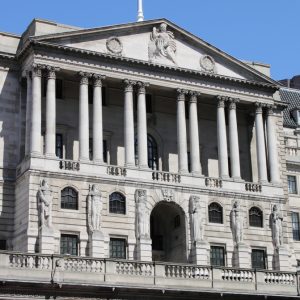
Next Thursday, 2 February, the MPC will announce whether we will see a tenth consecutive increase in the base rate. Although experts are very much in agreement that it won’t really be a question of ‘whether’ but just ‘how much’.
In a recent speech to the Western Mail’s Business Live, the Bank’s governor Andrew Bailey intimated that, overall this year, the rate would not breach the 4.5 per cent mark.
While he did not specifically “endorse” base rate peaking at 4.5 per cent, he hinted that the MPC no longer felt market expectations were “out of line”.
He said: “You may have noticed in December that we did not include the comment we made in November about the market being, in our view, rather out of line.”
Economists in agreement on rate rise
As for February’s change, the majority of economists believe that the Bank will raise rates by another 0.5 per cent.
Ashley Webb, UK economist at Capital Economics said: “CPI inflation is falling, but domestic inflationary pressures are proving persistent as the labour market remains tight and wage growth remains strong.
“Combined with a more resilient economy than the Bank of England and we had expected, that will leave the Bank concerned that inflation may not fall back to two per cent.
“We think the Bank will raise interest rates by 50 basis points from 3.50 per cent to four per cent at the next meeting on 2 February, and to a peak of 4.50 per cent in the coming months.”
Speaking to the Financial Times, Ruben Segura-Cayuela, economist at Bank of America agreed with this assessment.
He said: “The recent economic data “skew the risks towards [a 0.5 percentage point] hike [in interest rates] in February.”
And James Smith, developed markets economist at ING, also predicted a 50 basis point (bp) increase in February, with a smaller uplift in March.
He said: “If household bills return to the default price level set by the regulator Ofgem, then we’d expect the Consumer Price Index (CPI) to come in one to 1.5 percentage points lower than currently forecast.
“For the Bank of England that’s a double-edged sword – lower headline inflation would undoubtedly please the hawks most worried about inflation expectations de-anchoring. But lower gas prices mean a less pronounced hit to economic activity, potentially justifying tighter policy.
“In reality, the Bank will probably lean more towards the former argument, and we still think we’re close to the peak in terms of bank rate. That said, it looks like the combination of persistent wage pressures and higher core services inflation will unlock one more 50bp hike at the February meeting, potentially followed by a final 25bp move in March.”
The EY Item Club is a little more optimistic, feeling that rate hikes are almost at an end.
It said: “As the inflation outlook becomes less concerning, [we] think it is likely that the MPC will press pause on its rate hiking cycle soon, with bank rate expected to peak at four per cent in the spring.”

















